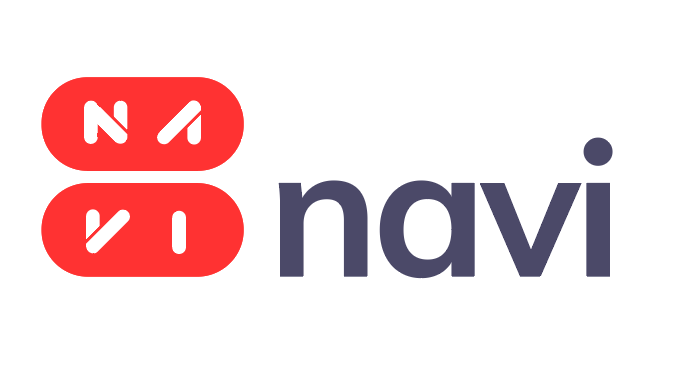Sachin Bansal’s Navi Finserv doubles revenue during 2023 June quarter

Sachin Bansal’s Navi Finserv doubles revenue during June quarter
During the June quarter, Navi Finserv Limited, a financial services company headquartered in Bengaluru and led by Sachin Bansal, experienced significant growth in its financial performance.
The company’s revenue from operations doubled, showing a substantial increase from Rs 220 crore in the same quarter of the previous year to Rs 439 crore in the current year’s first quarter. This growth in revenue suggests that the company has been successful in attracting more business and generating higher income from its financial services during the specified period.
Furthermore, Navi Finserv’s net profit also displayed positive growth, albeit at a slightly lower rate. The company’s net profit after tax for the quarter reached Rs 26 crore, marking a 14% increase compared to the Rs 23 crore profit reported during the corresponding quarter of the preceding fiscal year. This increase in net profit indicates that the company’s operational efficiency and cost management strategies have been effective in enhancing its bottom-line performance.
The improved financial results suggest that Navi Finserv Limited has managed to expand its customer base, increase its service offerings, or improve the efficiency of its operations. The leadership of Sachin Bansal, a prominent figure in the Indian business landscape, might have played a significant role in driving the company’s growth strategy.

It’s worth noting that these financial metrics provide insights into Navi Finserv’s short-term performance. To gain a comprehensive understanding of the company’s overall financial health and its trajectory, one would need to consider additional financial metrics, market trends, and external factors that could impact its future performance.
Navi Finserv Limited operates as a non-banking financial company (NBFC) and is a subsidiary of Navi Technologies, a holding company led by Sachin Bansal. Navi Finserv engages in various financial activities, including disbursing personal loans, home loans, and loans against property. This indicates the company’s involvement in providing a range of financial solutions to individuals and potentially businesses.

Within the umbrella of Navi Technologies, Sachin Bansal has expanded his ventures beyond Navi Finserv. He has established Navi AMC, an asset management company that manages investment products such as mutual funds, allowing individuals to invest their funds in a diversified portfolio under professional management. Additionally, Navi General Insurance, another subsidiary, specializes in offering health and motor insurance services, providing coverage for medical expenses and vehicle-related risks.
In a recent development, Navi Technologies has taken steps to optimize its business portfolio. Last week, the company entered into an agreement to sell its microfinance institution (MFI) business, Chaitanya India Fin Credit, to Svatantra Microfin, an MFI led by Ananya Birla.
The transaction is valued at Rs 1,479 crore. It’s noteworthy that Sachin Bansal had initially acquired Chaitanya India Fin Credit in 2019 for Rs 739 crore. The decision to sell the MFI business could be driven by strategic considerations, possibly as part of a broader focus on other core businesses within the Navi Technologies portfolio.

This move indicates that Navi Technologies, under the leadership of Sachin Bansal, is actively shaping its business landscape by divesting certain ventures while focusing on expanding and enhancing its presence in other sectors within the financial services industry. This strategic maneuver aligns with Bansal’s vision for the company’s growth and may be aimed at optimizing resources and capitalizing on emerging opportunities in the market.
For the entire financial year FY23, Navi Finserv Limited reported a total revenue of Rs 1,283 crore. This indicates the cumulative income generated by the company’s operations over the span of the fiscal year. Additionally, the company’s net profit for the same financial year amounted to Rs 172 crore, signifying the earnings remaining after deducting all expenses, taxes, and other financial obligations from the total revenue. This profit figure provides insight into the company’s overall financial performance and its ability to generate returns on its activities.
Within the context of its financial health, Navi Finserv has allocated a provision for impairment of its loan assets, amounting to Rs 471 crore as of June 30, 2023. This provision represents a precautionary measure to account for potential losses that might arise from loans that could become non-performing or experience other forms of deterioration in value. Such provisions are typical in financial institutions to ensure accurate reflection of potential risks in the financial statements.
Furthermore, the company’s board of directors has deliberated on and approved plans to raise funds through the issuance of non-convertible debentures (NCDs) and commercial papers (CPs). NCDs are debt instruments that companies issue to raise capital, and CPs are short-term debt instruments typically used for working capital requirements. The company plans to raise up to Rs 4,000 crores through NCDs on a private placement basis and up to Rs 1,500 crores through CPs. These funds are used to fuel the company’s operations, growth, and other financial needs.
In this regard, Navi Finserv has successfully secured Rs 1,403 crore through the issuance of NCDs. This demonstrates the company’s ability to access capital markets and attract investors to invest in its debt instruments, indicating a certain level of investor confidence in its financial stability and future prospects.
It’s important to note that the utilization of these funds, as well as the company’s ability to manage its loan assets and provisions, will impact its financial performance in subsequent periods. Therefore, investors and stakeholders often closely monitor these financial metrics to assess the company’s trajectory and financial soundness.
During the quarter in question, Navi Finserv engaged in co-lending arrangements, disbursing a total of Rs 859 crore. In these arrangements, Navi contributed 20% of the loan amount. Co-lending arrangements involve partnerships between banks or non-banking financial companies (NBFCs) and fintech companies to jointly provide loans, enabling efficient utilization of resources and expertise.
Navi Finserv’s overall loan book amounted to Rs 6,444 crore. This figure represents the aggregate value of the loans the company has extended to borrowers. Within this loan book, the secured portfolio accounted for Rs 3,842 crore. The distinction between secured and unsecured loans lies in the presence of collateral for secured loans, which provides an added layer of protection for the lender in case of borrower default.
Additionally, Navi Finserv reported cash and bank balances totaling Rs 1,285 crore. These funds represent the company’s liquid assets, which can be used for various purposes, including disbursing loans, managing operational expenses, and pursuing growth opportunities.
Sachin Bansal’s initial motivation for acquiring Chaitanya India Fin Credit was to obtain a universal banking license, which would have allowed him to accept deposits from the public, thus providing a cost-effective source of capital for expanding the lending business. However, his application for a banking license was denied by the Reserve Bank of India (RBI) in the previous year. Consequently, retaining ownership of Chaitanya, a rural-focused microfinance institution, no longer aligned with Bansal’s aspirations of becoming a digital lender with a broader scope.
Given the circumstances, it appears that Sachin Bansal is poised to leverage the cash proceeds from the sale of Chaitanya India Fin Credit to fuel the aggressive growth of Navi Finserv’s lending operations. This capital injection could facilitate the company’s expansion, enable the pursuit of new lending opportunities, and support its transformation into a prominent player in the digital lending landscape.




